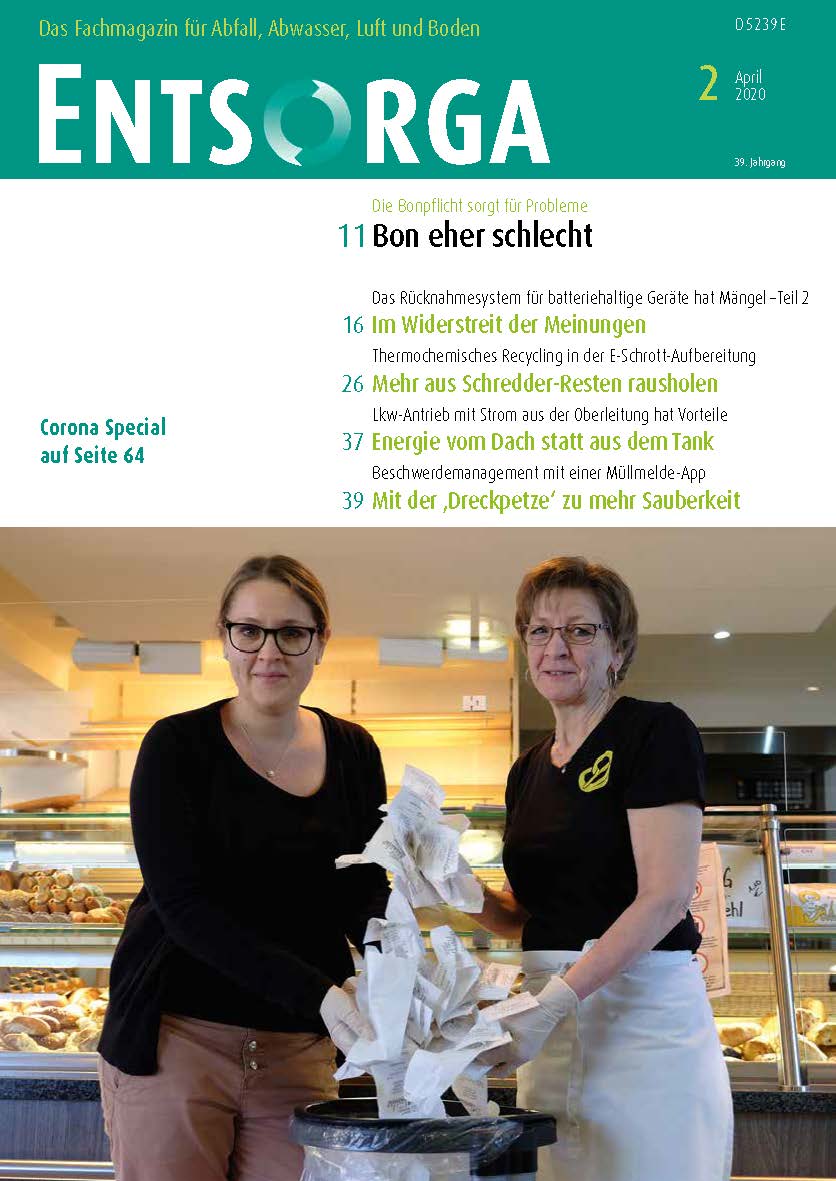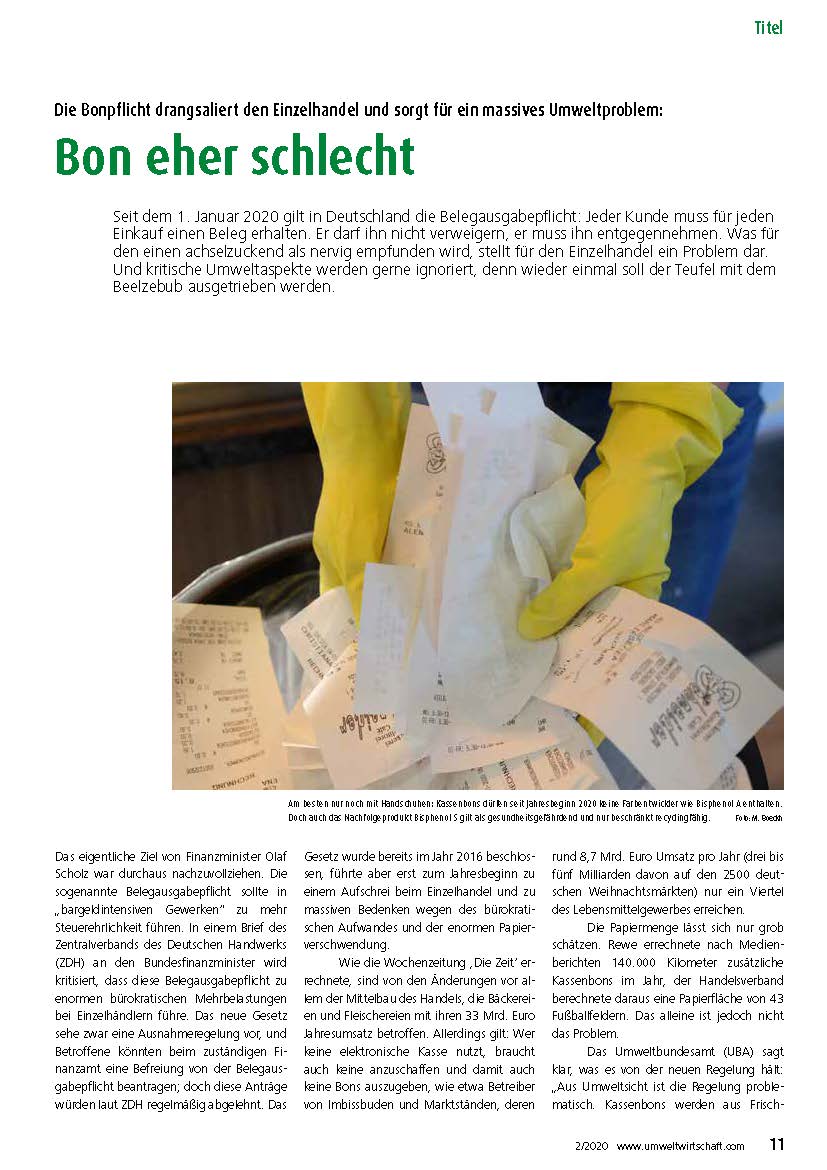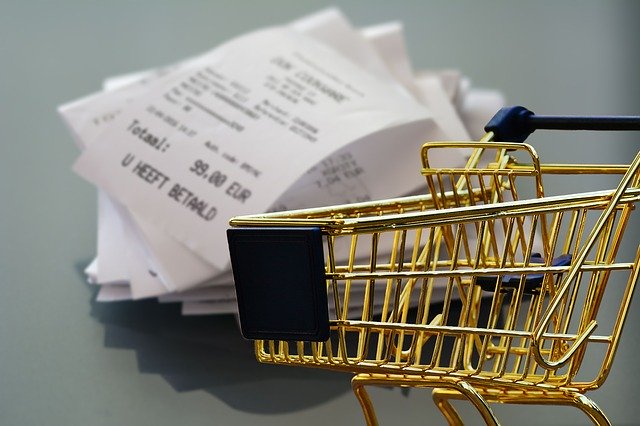INGEDE News
April/May 2020
- Calendar of Events
- Report about Thermal paper and the obligation to print receipts in “Entsorga Magazin” (in German only)
- No virus on paper and board: Two Sides (E) and Drosten (D) agree
- Price for paper for recycling going down and grass paper – INGEDE topics in the German media
- CEPI: Launch of the European Alliance for a Green Recovery
- SUBSCRIBE here to our monthly newsletter!
No virus on paper and board:
Two Sides and German expert Drosten agree
“Zeitungen sind aufgrund der Art und Weise, wie sie gedruckt werden, und des Prozesses, den sie durchlaufen haben, ziemlich steril”, sagte George Lomonossoff, Virologe am John Innes Centre in Großbritannien. “Traditionell haben die Menschen genau aus diesem Grund Fisch und Chips aus ihnen gegessen… Die Wahrscheinlichkeit einer [Infektion] ist verschwindend gering”, berichtet Two Sides, eine Initiative von Unternehmen aus der Produktionskette von grafischen Medien.
Das Thema Überlebenszeit des Virus auf Oberflächen hat Prof. Christian Drosten, Leiter der Virologie an der Charité, schon am 16. März 2020 in seinem Podcast ausgiebig erläutert. Alles auch eine Frage der Verdünnung, sagt er: “Die Frage ist natürlich, wenn man das dann an den Finger kriegt und an den Mund, ob da noch etwas Infektiöses übrig bleibt!”
„Wir brauchen eine gesunde und realistische Einschätzung“, ergänzt Drosten – das wirkliche Risiko sei nicht die Übertragung durch Oberflächen, sondern durch Husten und feuchte Aussprache.
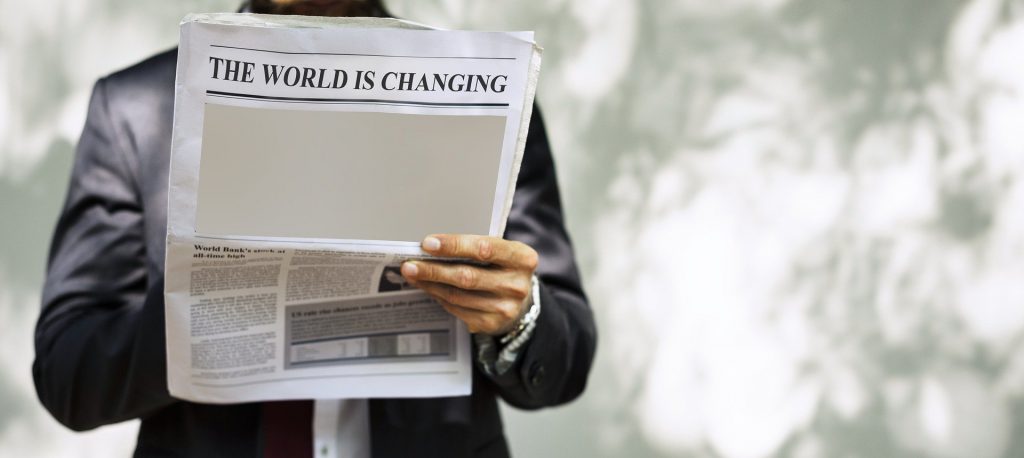
The Facts Relating To Covid-19 Transmission Through Paper/Cardboard Surfaces
The most referenced scientific research on the subject of surface rate of infection is from the National Institutes of Health (NIH), Centers for Disease Control (CDC), UCLA, and Princeton University, which studied how stable the coronavirus was on different surfaces. It found that of plastic, stainless steel and cardboard, the virus lasted the longest on plastic (up to 72 hours) and the shortest on cardboard (up to 24 hours)[2]. That time is shortened when the surface is exposed to air, with the virus becoming less and less potent the more it’s exposed. The printing process will also decrease the potency of any virus.
“Newspapers are pretty sterile because of the way they are printed and the process they’ve been through,” said George Lomonossoff, a virologist at the John Innes Centre in the UK. “Traditionally, people have eaten fish and chips out of them for that very reason. So all of the ink and the print makes them actually quite sterile. The chances of [being infected] are infinitesimal.”
(Source and more: Two Sides)
The American Centers for Disease Control and Prevention (CDC) say, transmission via surfaces “is not thought to be the main way the virus spreads, but we are still learning more about this virus“.
Their recommendation: “Wash your hands often with soap and water. If soap and water are not available, use an alcohol-based hand rub. Also, routinely clean frequently touched surfaces.“
Two Sides now has also a paper/board Covid-19 factsheet for download.
Bericht über Kassenbons und Thermopapier
im Entsorga Magazin
Martin Boeckh, verantwortlicher Redakteur beim Entsorga Magazin, hat bei seinen Recherchen zum Thema Thermopapier mit Herstellern und Anwendern gesprochen – und mit der INGEDE: Die farbentwicklerfreien Thermopapiere wie Ökobon und Blu4est von Koehler Paper Group seien im Verpackungsrecycling zwar unproblematisch, aber aufgrund der enthaltenen schwer entfernbaren Pigmente für ein Deinking zu weißem Papier derzeit nicht geeignet.
Dem entgegnet Marketingleiter und Kommunikationschef Christoph Müller-Stoffels bei Koehler laut Boeckh: „Blue4est kann grundsätzlich über das konventionelle Papierrecycling entsorgt werden.“
Dass das weiß beschichtete Papier im Sortierprozess „auf die falsche Bahn“ gerät, ist für ihn kein Problem: „Das ist meines Erachtens nach eine Frage der Sortierung, und diese Frage müssen die Verwerter beantworten.“
Den vollständigen Beitrag können Sie mit freundlicher Genehmigung des Entsorga Magazins hier herunterladen.
Der Bericht des Entsorga Magazins steht auch hier auf der Webseite des Magazins.
Aus den Medien:
„Warum der Altpapierpreis im Sturzflug ist“
Jochen Marmit im Gespräch mit SR-Reporterin Krissy Mockenhaupt,
Saarländischer Rundfunk SR2 am 29.04.2020 | 15:56 Uhr
(Achtung, der Titel ist nicht mehr zutreffend; die Sendung war vermutlich noch nicht gesendet, da war aus dem Sturzflug schon wieder ein Anstieg zurück in gewohnte Regionen geworden, Anm. d. Red., und FOEX meldet: “Marktinsidern zufolge haben sich die Preise im April im Vergleich zum Vormonat fast verdoppelt.“)
„Graspapier ist ein Produkt, das die Welt nicht braucht“
Graspapier wird eine vielversprechende Zukunft vorhergesagt. Zu Unrecht, wie Axel Fischer von der Deinkinggemeinschaft INGEDE meint. Er hält das für einen Marketinggag. Im Interview erklärt er, warum.
320° – Deutschlands Online-Magazin für die Recyclingwirtschaft am 26.03.2020
CEPI: Launch of the European Alliance for a Green Recovery
Covid-19 will not make climate change and nature degradation go away
Press Release of April 14, 2020
Cepi, the Confederation of European paper industries and its members across Europe, strongly support the initiative of Pascal Canfin, Chair of the Environment Committee at the European Parliament, to launch a European alliance for a Green Recovery. Cepi joins 180 political decision-makers, business leaders, trade unions, NGOs, and think tanks who have come together to create the alliance.
In the face of the coronavirus crisis, the biggest challenge Europe has faced in peacetime, with devastating consequences and a shock to the economy tougher than the 2008 crisis, Ministers from 11 countries, 79 cross-party MEPs from 17 Member States, 37 CEOs, 28 business associations representing 10 different sectors, trade union confederation representing members from 90 national trade union organisations and 10 trade union federations, 7 NGOs and 6 think tanks, have committed to working together to create, support and implement solutions to prepare our economies for the world of tomorrow.
This first pan-European call for mobilisation on post-crisis green investment packages will work to build the recovery and transformation plans which enshrine the fight against climate change and biodiversity as a key pillar of the economic strategy.
Sharing the belief that the economic recovery will only come with massive investments to protect and create jobs and to support all companies, regions and sectors that have suffered from the economy coming to a sudden halt, the alliance commits to contribute to the post-crisis investment decisions needed to reboot and reboost our economy.
Covid-19 will not make climate change and nature degradation go away. The fight against this crisis will not be won without a solid economic response. The alliance commits to participate in the fight and the victory of these two battles simultaneously, and by doing so, being stronger together.
HIER ANMELDEN zum monatlichen Newsletter!


